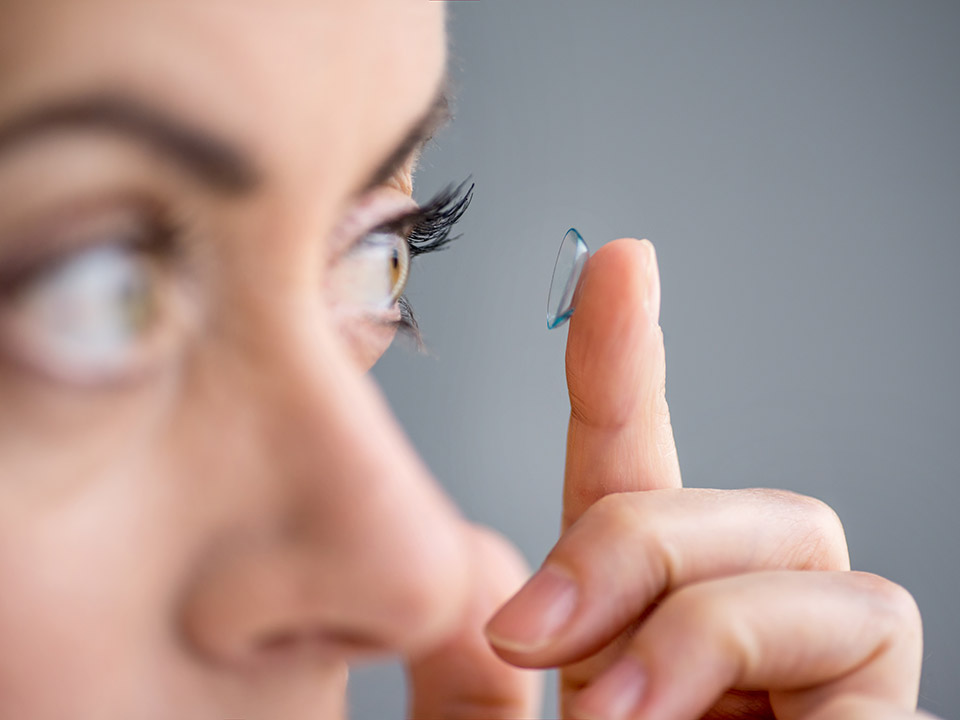Contact Lenses: Which Type is Best for You

Do you struggle with wearing glasses while playing sports, working out, or even just going about your day-to-day routine? You’re not alone. According to the American Optometric Association, nearly 45 million Americans wear contact lenses, and that number is expected to keep growing. But with so many different types of contact lenses available, it can be tough to know which one is the best fit for you. In this guide, we’ll explore the various types of contact lenses and factors to consider when selecting the right type for your unique needs and preferences.
Importance of Selecting the Right Type of Contact Lenses
Selecting the right type of contact lenses is crucial for maintaining good eye health, preventing discomfort or irritation, and ensuring optimal vision correction. Wearing the wrong type of contact lenses can result in dryness, irritation, infection, or even damage to the cornea.
Furthermore, certain types of contact lenses are better suited for specific eye conditions or lifestyle factors, so selecting the right type can also enhance comfort, convenience, and overall quality of life. Consulting with an eye doctor and taking into account factors such as prescription strength, eye health, lifestyle, and cost can help ensure you choose the right type of contact lenses.
Different Types of Contact Lenses
While there are many different types of contact lenses available, it can be difficult to know which type is best suited to your needs. Here’s an overview of some of the most common types of contact lenses, so you can make an informed decision.
Soft Contact Lenses
Soft contact lenses are the most popular type of contacts, and they come in a variety of styles to suit your lifestyle. The five most common types of soft contact lenses include daily disposable, monthly disposable, extended wear, toric, and multifocal.
Daily Disposable
People wear daily disposable contacts once and then throw them away at the end of the day, making them an ideal choice for those who do not want to worry about cleaning or storing their contacts overnight. Daily disposable contacts tend to be more comfortable than other types of contacts since they do not accumulate dirt or protein deposits over time.
Monthly Disposable
You need to replace monthly disposable contact lenses every month, but you can wear them continuously throughout the day before removing and cleaning them each night. This type of lens offers great convenience for people with an active lifestyle who do not want to worry about replacing their contacts too frequently.
Extended Wear
You can wear extended wear contacts continuously for up to 30 days without needing to remove or clean them each night. These lenses offer great convenience for people who do not want to hassle with cleaning their contacts regularly but still want to avoid replacing them as often as with daily disposables or monthly disposables.
Toric
Toric contact lenses are designed specifically for people with astigmatism, which is a condition that causes blurred vision due to an irregularly shaped cornea. These lenses help correct astigmatism by providing smudge-free vision all day long without any distortion or blurriness.
Multifocal
Multifocal contact lenses are designed for those who suffer from presbyopia, which is a condition that causes difficulty focusing on close objects due to age-related changes in the eye’s focusing system. Multifocal contact lenses allow users to focus on both near and far objects without having to switch between multiple pairs of glasses or bifocals throughout the day.
Rigid Gas Permeable (RGP) Contact Lenses
Rigid gas permeable (RGP) contact lenses are made from hard plastic materials, making them one of the most durable kinds of contacts on the market. They provide superior optical clarity compared to soft contacts, making them ideal for people with sharper vision correction needs. Additionally, RGP lenses allow more oxygen to reach your eye than soft contacts, making them more comfortable over long periods.
Hybrid Contact Lenses
Hybrid contact lenses are a combination of rigid gas permeable and soft contacts, combining the durability and clarity of RGP lenses with the comfort and flexibility of soft contacts. The rigid center offers sharp vision correction while the surrounding soft material allows for comfort and movement in your eyes. These types of contacts are best for those who want clear vision as well as comfort throughout their day-to-day activities.
Scleral Contact Lenses
Scleral contact lenses are larger than normal contacts; they cover not only your cornea but also part of your sclera (the white part of your eye). This makes them ideal for those with severe vision corrections or eye conditions such as keratoconus. Sclerals provide sharp vision correction while also helping protect sensitive eyes from dust, dirt, UV exposure, or windy weather conditions.
Factors to Consider When Buying Contact Lenses
There are so many factors to consider and so many different types of contacts available, it’s hard to know where to start. Here’s an overview of factors to consider when choosing contact lenses
Eye Health
The most important factor when choosing contact lenses is your eye health. No matter what your lifestyle needs or budget may be, it’s essential that you select a pair of contacts that won’t harm your eyes. Before buying any type of contact lens (even if they are simply decorative), make sure to consult with an optometrist or ophthalmologist. They will be able to assess your eyes and determine which type of lens is right for you.
Prescription Strength
When selecting a pair of contacts, ensure that you get the right prescription strength for your eyes. A contact lens that is too weak may lead to headaches and eyestrain while one that is too strong can cause vision distortion and discomfort. Make sure to get a professional opinion from an optometrist before making any purchases.
Comfort and Convenience
You should always choose a lens that fits your eye shape properly and won’t cause any discomfort during wear. Also think about how easy it will be to care for your contacts on a daily basis- are you willing to clean them each night or would you rather have something more convenient like daily disposables?
Lifestyle Factors
Different lifestyles require different types of contact lenses. If you’re an active person who spends most of their time outdoors or playing sports, then daily disposable lenses might be your best bet. If you’re looking for something more permanent and don’t mind cleaning and caring for your contacts each night, then monthly or yearly disposables could be the right choice for you.
Cost
Monthly or yearly disposables tend to be more affordable than daily disposables in the long run, but if you don’t mind paying more upfront then daily disposables could end up being cheaper overall. It really depends on how often you plan on wearing them and what type of lifestyle you lead.
Conclusion
Choosing the right contact lenses can seem like a daunting task at first, but with careful consideration of your lifestyle needs, comfort levels, convenience preferences, and budget limits it can actually be quite easy! Your optometrist will be able to provide tailored advice based on your specific circumstances and help ensure that you get the best possible fit for your individual requirements.




